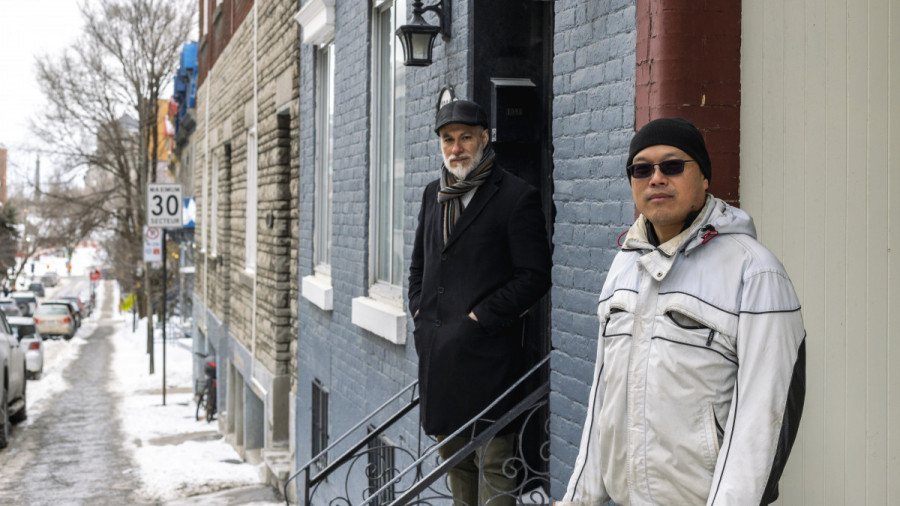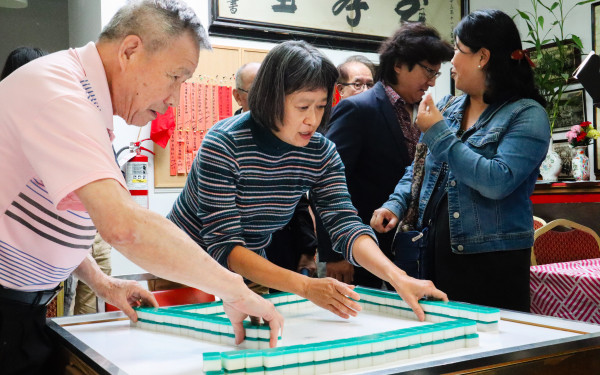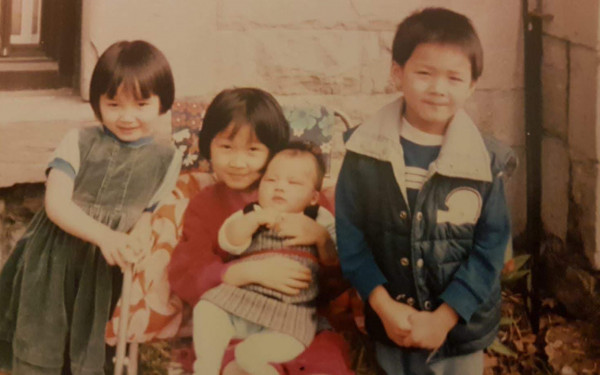Chinatown Action Plan Implementation Frustrates Community
Since its Implementation in 2021, the Chinatown Action Plan’s Purpose Was to Propel the Neighbourhood. How Much Has Been Done?
This story is part of the Canadian University Press’ Racialized Reporting Grant.
Kent Chong’s slumber was interrupted by drilling sounds coming from his backyard. Two holes had been freshly dug into the asphalt—his home was transformed into a sandbox overnight.
After early warning signs of nearby construction in 2019, Chong was surprised his property was in the middle of a high-rise construction project.
Chong’s property sustained major damage, reducing his storage space, roof and balcony. Fallen debris chipped his roof and sides of his home, making the property a safety hazard for the three generations of his family living together, including his parents and two young children.
“When [the construction workers] dug the holes, I told them: ‘You just come and dig these holes, you leave a massive mess. You leave these holes here that my kids can trip over,’” Chong said. “My father also lost the space to be able to go out in the back because he still tries to stay active. They refused to clean up, I tried to do some of it, but I couldn't do all of it.”
In January 2022, the provincial government granted heritage protection on two historic building blocks in Chinatown and the city placed new urban development parameters. While some of the newly-implemented policy goals to protect the area were met, the construction on Chong’s property shows the city’s broken promises for Chinatown’s longtime residents.
In July 2021, Montréal’s city council, Chinatown’s community groups and Heritage Montréal, released a five-year action plan which aimed to improve the quality of life for Chinatown’s residents and preserve the physicality of the neighbourhood.
The plan includes implementing heritage protection on buildings, incentives to renovate commercial buildings, economic measures to help businesses flourish, investing in cultural and community activities, additional green spaces, and building affordable housing units.
But two years into Montreal’s Chinatown action plan, the neighborhood continues to face issues with challenges that remain to be solved adequately. From further gentrification of the neighborhood to cultural incompetence from city officials, advocates say there is a lot of work left to be done.
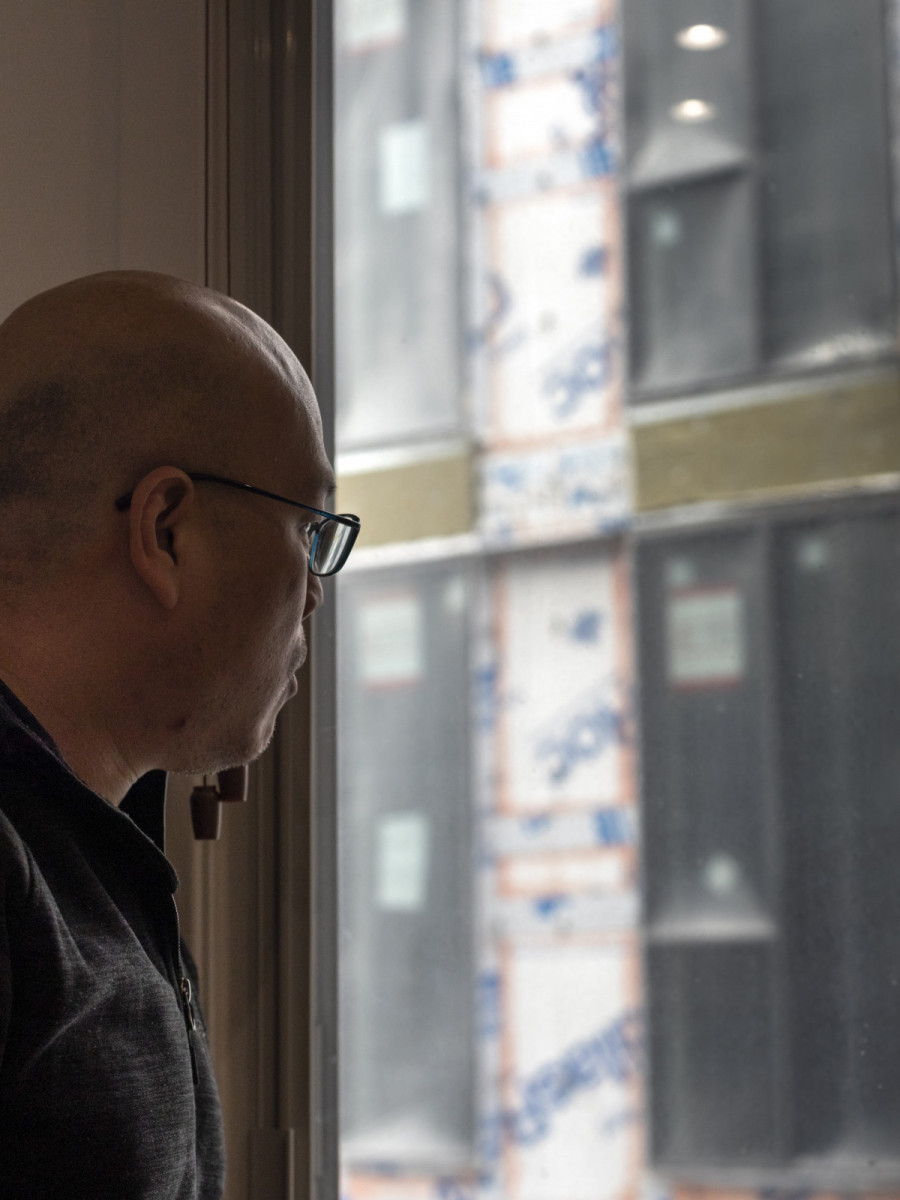
According to May Chiu of the Progressive Chinese of Quebec (PCQ), the current action plan was based on previous meetings with city council members.
In 2019, Chinatown’s community members released a petition for the city to engage in public consultations with residents and implement an action plan to ward off impending real estate projects from the neighbourhood without proper consultation.
Sections of the action plan receive support from Montreal and Ville-Marie’s services, such as the urbanism, mobility, cultural and social development services to improve public space in Chinatown.
In April 2021, consultations with the city were enacted after notorious real estate companies Shiller Lavy and Kornbluth bought off a historic block of Chinatown’s residential buildings.
In the city’s action plan, a roundtable committee was created to engage in conversations with residents of all generations, experts, community organizations, urban planners and real estate developers.
According to Chiu, the first phase of consultations with the Centre d'écologie urbaine de Montréal (CEUM) were fruitless and required a “massive amount of volunteer work” to educate consultation members.
Since her work began on Chinatown years ago, the largest barrier has been the local government’s lack of cultural competence in planning. “This has been our systemic challenge working with the city since 2019,” Chiu added. “It’s been exhausting.”
“Our first hurdle was, we wanted an executor of the consultation to be someone with cultural and linguistic competence,” said Chiu. “Whenever [the city] put money into hiring an expert to do something about Chinatown, to be blunt, they always hired white people.”
Chiu expressed that it was “tiring” that people hired by the city often have “no linguistic or cultural” knowledge, forcing the community to volunteer their time to “teach these so-called experts or professionals on how to do their job.”
“The massive amount of volunteer work that we had to do to educate the CEUM on how to conduct the consultation, what kind of questions to ask, who to consult, how to do the outreach was so and then we ourselves did a lot of the mobilization and we participated in every single meeting. That was part of the consultation process,” Chiu said.
“This has been our systemic challenge working with the city since 2019. It’s been exhausting.” — May Chiu
Chiu added that one of the challenges going forward is having an equal partnership with the city, allowing the expertise within the Chinatown community to be respected.
While the consultations did not reach the same goal, both sides of the committee were open to suggestions and solutions. The Chinatown Roundtable was created alongside residents, business-owners, urban planners, environmental activists and housing rights activists to advocate for the preservation, protection and amelioration of the neighbourhood.
In October 2022, the Office de consultation du Montréal (OCPM) wrote a report on further measures the city could implement to protect Chinatown, which included zoning by-laws to reduce the average height of newly constructed buildings from 65 to 25 metres.
Chiu mentioned that another roundtable discussion with real estate developers and lobby groups was supposed to take place in April 2022, but none of developers and lobby groups showed up.
“I think that they're probably disappointed given the interim measures that the city had declared way back in January 2022,” Chiu said. “And then the recommendations of the OCPM made it very clear that there's not going to be more monster constructions in Chinatown, that do not respect the heritage landscape of historic Chinatown, so we haven't seen them.”
Despite residents’ discussions surrounding heritage protection and improving infrastructure, the action plan helped bring business into Chinatown by proposing a merchants’ association.
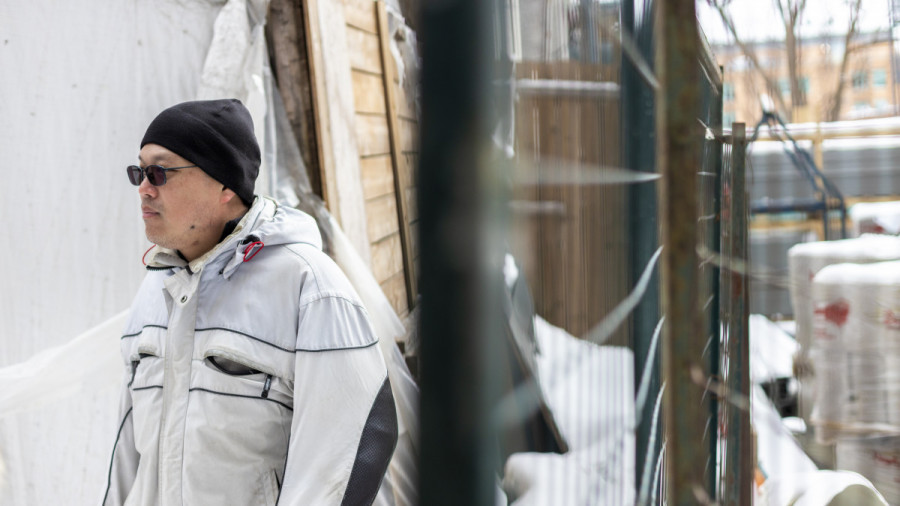
The purpose of the association would be to revitalize businesses belonging to community members. When the pandemic ripped through Montreal, Chinatown’s businesses bore the brunt of lockdowns, vandalism, reduced foot traffic and anti-Asian racism.
Over the summer of 2022, La Pépinière Espaces Collectifs, Marché de Nuit, the Quartier des Spectacles Partnership and Tourisme Montréal held L'Oasis: Quartier chinois and the Asian Night Market as part of the Moments du cœur de l’île initiative, bringing local vendors and artists to showcase their talents.
Among the many performers was Bahay Collective member Chuong Truong, also known by the stage name Lil Waterboi, who illuminated the Night Market with dynamic performances alongside his labelmates.
For Chuong and Bahay, a music collective, Chinatown is meaningful for BIPOC performers to express themselves. “What I really appreciate about this event is [the tourism sector] let us do our thing, and I think that makes things special,” said Chuong. “Having the platform and voice is everything.”
The Link reached out to the city of Montreal for comment on future developments on the action plan but did not respond by the deadline.
While Chong embraces the idea of development in the area, he wants a more ethical approach to existing residents.
“I can't expect Chinatown to remain a village. It has to integrate, it has to modernize, it has to change,” said Chong. ”But at the same time, we have to be respectful to the fact that it's still residential. There's still a very large residential component here.”
This article originally appeared in Volume 43, Issue 13, published March 7, 2023.

